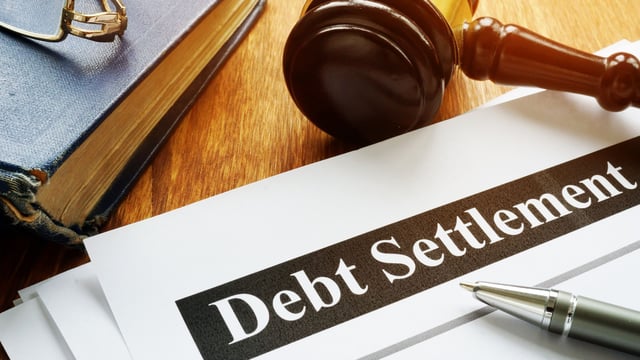Before signing up for debt mediation, you should know this
There are an abundance of debt solutions online. Not all of them are legal or in your best interests.
What is debt mediation?
Debt mediation is a form of alternative dispute resolution (ADR). It is intended to help consumers who have disputes with their creditors.
The debt mediator is supposed to act as a third party (mediator) between the consumer and the creditor to help resolve any disputes, without involving the court.
If a company claims to offer ADR services related to credit agreements with creditors, you must check that they are registered with The National Credit Regulator.
The problem with mediation is that companies or individuals are either:
- Promising to remove debt review flags from your credit report.
- Promising to negotiate your payment plan, including reducing your repayment term and monthly payments.
When they, in fact, do not have the authority to do so.
Debt mediation or Voluntary Debt Mediation solution (VDM) is also intended to be a debt relief process that helps consumers who are very close to being over-indebted.
This means that they may not have been found to be over-indebted to enter the debt review process, but they may still be experiencing financial difficulty.
Moku tip: Beware of debt mediation scams claiming they can lift your debt review flag from your credit report!
If a debt mediation company is trying to scam you, they will usually follow the process outlined below:
- A company contacts you, an existing debt review client.
- They will state that they offer mediation and not debt review.
- They make the promise to lift the debt review flag from your credit report, reduce your repayment term and reduce your monthly debt instalment.
- You sign the form because these are amazing promises. This form just indicates that you will be transferred to another debt review company.
- Your new monthly amount is either the same as your previous one, or in many cases, is actually higher.
- The company will refuse to get you out of this new mediation process and will say you are locked in.
You are now worse off than you were in debt review.
Very important Moku Tip: you can only be removed from debt review if you have paid all your debts, other than your home loan. Companies claiming they can reduce your term or your instalment should be a red flag to you. This is very often not the case and you could be left paying even more than your original debt review monthly instalment.
Have you paid up all your debts and need to be cleared? If this is the case, we can help with removing the debt review flag from your credit report.
Follow our simple online application process by clicking the button below.
How does debt Mediation work?
Usually a company or a lawyer works on your behalf as a mediator between you (the consumer) and your creditors to resolve any disputes quickly.
What does it mean to go under debt mediation?
Debt mediation claims to follow a similar process as debt review, but without the legal protection of your assets. This process could result in a client paying more than their original monthly debt instalment.
NCR launched an investigation into a debt mediation company
MSR Financial Solutions, previously known as Major Authorised Debt Mediation, offered South Africans alternative dispute resolution (ADR) services, when the company was not actually registered with the National Credit Regulator.
The company was also not acting in accordance with the National Credit Act. The National Credit Tribunal (NCT) shut the company down and fined them R50 000.
Does debt Mediation affect your credit score?
It can negatively affect your credit score, especially if you are defaulting on paying any of your accounts during the process.
What is the difference between debt review and mediation?
- With debt mediation, you do not have to be declared over-indebted to be accepted into the programme.
- With debt mediation, no court order is obtained for your repayment plan which leaves you vulnerable to:
- Creditors still harassing you demanding payment.
- Creditors taking necessary legal action against you if payment of your accounts have not been made.
- Potential repossession of your home or car.
- Debt review, on the other hand, will only accept clients who have been declared over-indebted and unable to pay for their monthly debt repayments each month.
- Debt review also ensures that a court order is granted for a client’s repayment plan, protecting the client’s assets from repossession.
Read: Debt Counselling | Everything you need to know


